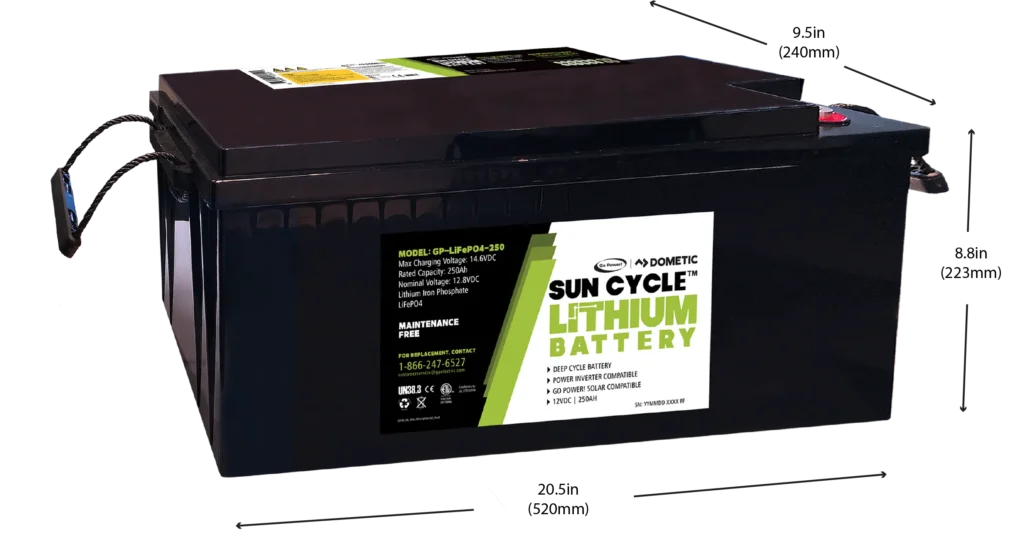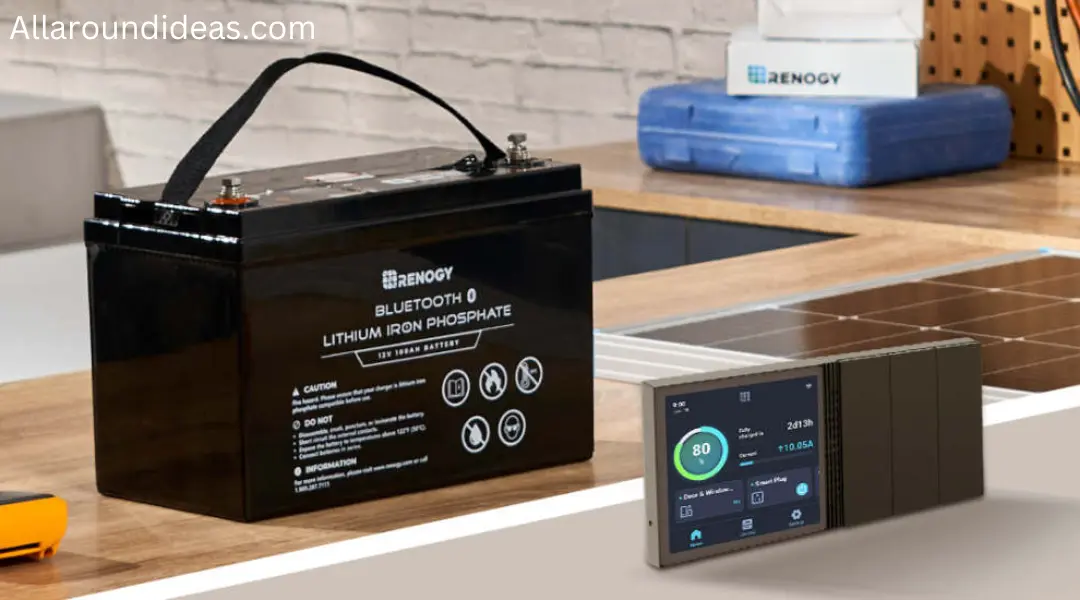As the world shifts towards renewable energy, solar power has emerged as a leading alternative. Central to maximizing the benefits of solar energy is the solar battery, an essential component that stores excess energy generated by solar panels for later use. This article explores solar batteries, their types, how they work, and the pros and cons associated with their use.
What is a Solar Battery?
A solar battery is a rechargeable battery that stores energy generated from solar panels. This energy can then be used when sunlight is not available, such as during the night or on cloudy days. By storing energy, solar batteries enhance the efficiency and utility of solar energy systems, enabling users to reduce their reliance on the grid and lower energy costs.
How Solar Batteries Work
When solar panels generate electricity during the day, that energy can be used to power your home or business immediately. However, when the solar panels produce more energy than is consumed, the excess electricity is directed into the solar battery for storage.
During periods when solar generation is low, the stored energy can be drawn from the battery to power electrical devices. This process not only increases energy independence but also helps mitigate fluctuations in energy costs.
If you want some information about shoe soles and their types then check out our blog post about Soles.

Types of Solar Batteries
Solar batteries come in various types, each with unique characteristics suited for different applications:
- Lithium-ion Batteries
- Description: The most common type of solar battery, lithium-ion batteries are lightweight, compact, and highly efficient.
- Applications: Widely used in residential solar systems and electric vehicles due to their high energy density and long lifespan.
- Lead-acid Batteries
- Description: Traditional solar batteries that have been used for decades. They are available in two main types: flooded and sealed (AGM and Gel).
- Applications: Suitable for off-grid systems and backup power solutions, though they have a shorter lifespan compared to lithium-ion batteries.
- Flow Batteries
- Description: These batteries store energy in liquid electrolyte solutions, allowing for larger scale energy storage.
- Applications: Often used in commercial and industrial applications due to their scalability and longevity.
- Sodium-ion Batteries
- Description: An emerging technology that utilizes sodium instead of lithium, offering a more abundant and potentially cost-effective solution.
- Applications: Still in the development phase, but they hold promise for large-scale energy storage in the future.
If you want some information about shoe soles and their types then check out our blog post about Soles.
Pros of Solar Batteries
1. Energy Independence
One of the most significant advantages of solar batteries is the ability to reduce reliance on the grid. By storing solar energy, homeowners and businesses can use stored electricity during peak hours or outages, increasing self-sufficiency.
2. Cost Savings
Solar batteries can lead to significant savings on energy bills. By utilizing stored energy during peak pricing periods, users can avoid high electricity costs associated with grid power. In some regions, net metering programs allow users to sell excess stored energy back to the grid, generating additional income.
3. Backup Power
In the event of a power outage, solar batteries provide a reliable backup power source. This is particularly important for those living in areas prone to blackouts or for critical infrastructure that requires uninterrupted power.
4. Environmental Benefits
By maximizing the use of renewable energy and reducing dependence on fossil fuels, solar batteries contribute to lower carbon emissions. This transition supports global efforts to combat climate change and promotes a cleaner environment.
5. Increased Efficiency of Solar Systems
Solar batteries enhance the overall efficiency of solar energy systems. By storing excess energy, users can optimize their solar investment and ensure that more of the generated power is utilized rather than wasted.

Cons of Solar Batteries
1. High Initial Costs
One of the most significant drawbacks of solar batteries is their high upfront cost. The price of lithium-ion batteries, in particular, can be substantial, making it challenging for some households to justify the investment. While costs have been declining, initial expenses can still be a barrier.
2. Limited Lifespan
Different types of batteries have varying lifespans. For instance, lithium-ion batteries typically last between 10 to 15 years, while lead-acid batteries may last only 3 to 7 years. This necessitates future replacements, which can add to long-term costs.
3. Maintenance Requirements
Certain types of batteries, especially lead-acid batteries, require regular maintenance, such as checking electrolyte levels and cleaning terminals. This can be a drawback for users who prefer a more hands-off approach to energy storage.
4. Space Considerations
Solar batteries require physical space for installation, which can be a concern for smaller homes or those with limited storage options. Proper placement is essential for optimal performance and safety.
5. Energy Capacity Limitations
Each solar battery has a specific storage capacity, which may limit the amount of energy that can be stored. Users with high energy demands may need multiple batteries, further increasing costs and complexity.
If you want some information about shoe soles and their types then check out our blog post about Soles.
Factors to Consider When Choosing a Solar Battery
When selecting a solar battery, several factors should be taken into account to ensure it meets your energy needs:
1. Capacity and Power Rating
Understanding the capacity (measured in kilowatt-hours or kWh) and power rating (measured in kilowatts or kW) of a battery is crucial. The capacity indicates how much energy the battery can store, while the power rating indicates how much energy it can deliver at any given moment. Assess your energy consumption to choose a battery that fits your needs.
2. Type of Battery
As discussed, different battery types offer varying advantages and disadvantages. Consider factors such as lifespan, maintenance needs, and efficiency when choosing the type that best suits your situation.
3. Compatibility with Solar Panels
Ensure that the solar battery you choose is compatible with your existing solar panel system. Some batteries are designed to work seamlessly with specific inverters or solar setups, which can affect performance.
4. Warranty and Lifespan
Check the warranty offered by the manufacturer, as this can provide insight into the expected lifespan and reliability of the battery. A longer warranty typically indicates confidence in the product’s longevity.
5. Installation Requirements
Consider whether professional installation is necessary and if so, factor in the associated costs. Some batteries may require specialized installation due to their size or complexity.

The Future of Solar Batteries
The future of solar batteries looks promising, with ongoing research and development aimed at improving efficiency, capacity, and affordability. Innovations such as solid-state batteries and advancements in sodium-ion technology could revolutionize the industry, making solar energy storage more accessible and effective.
As the demand for renewable energy continues to grow, the role of solar batteries will become increasingly vital. They will not only facilitate the transition to clean energy but also empower individuals and communities to take control of their energy consumption.
Conclusion
Solar batteries are a crucial component in harnessing the full potential of solar energy. They offer numerous benefits, including energy independence, cost savings, and environmental advantages. However, potential users should also consider the drawbacks, such as high initial costs and maintenance requirements.
By understanding the various types of solar batteries, their pros and cons, and factors to consider when choosing one, individuals can make informed decisions that align with their energy needs and sustainability goals. As technology continues to evolve, solar batteries will play an essential role in shaping a more sustainable and resilient energy future.
If you want some information about shoe soles and their types then check out our blog post about Soles.


